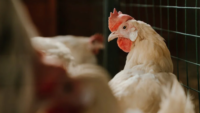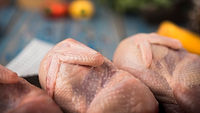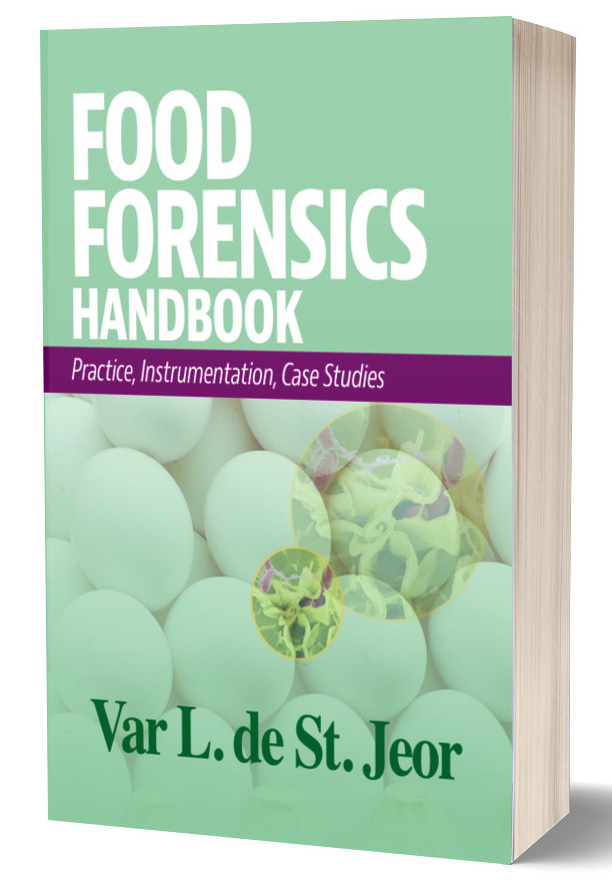USDA Withdraws Proposed Regulatory Framework for Salmonella in Poultry After Years of Development

Image credit: mrsiraphol via Freepik
The U.S. Department of Agriculture’s Food Safety and Inspection Service (USDA-FSIS) is withdrawing its proposed regulatory framework for Salmonella in raw poultry, which was published in August 2024 after years of consideration, including engagement with scientific advisory committees and stakeholder consultations. The goal of the proposed framework was to reduce the cases of human salmonellosis attributable to the consumption of poultry, because, despite the effectiveness of FSIS’ current Salmonella verification sampling program in reducing the proportion of poultry products contaminated with the pathogen, it has not translated into a reduction in foodborne illness.
FSIS is withdrawing the proposed framework because it “determined that additional consideration is needed in light of the feedback received during the public comment period, which closed on January 17, 2025.” Based on the input received from stakeholders, FSIS will evaluate whether it should update the current poultry Salmonella performance standards.
Consumer protection groups have expressed their disappointment with the decision. For example, Brian Ronholm, Director of Food Policy at Consumer Reports, stated, "USDA’s decision is disappointing and troubling given the large number of poultry plants that have been found to pose a higher risk of triggering a Salmonella outbreak,” referring to an analysis released by the group in March 2025 that identified the “most contaminated” poultry plants in the U.S. He continued, “Salmonella infections from poultry have increased steadily over the past decade and sicken hundreds of thousands of Americans every year. Consumers deserve better safeguards against Salmonella and other threats to our food supply.”
Sandra Eskin, J.D., CEO of STOP Foodborne Illness and former U.S. Deputy Under Secretary for Food Safety at USDA-FSIS, said, "The decision to withdraw the Salmonella poultry framework sends the clear message that the 'Make America Healthy [Again]' initiative does not care about the thousands of people who get sick from preventable foodborne Salmonella infections linked to poultry. The proposal was developed with robust stakeholder input and the decision to withdraw it was made before FSIS even had an opportunity to review the extensive docket." Ms. Eskin served at USDA-FSIS during the development of the framework for Salmonella in poultry, prior to the January 2025 presidential administration change.
Sarah Sorscher, Director of Regulatory Affairs at the Center for Science in the Public Interest, cited Salmonella as the leading cause of foodborne illness in the U.S., resulting in more than 26,000 illnesses and 420 deaths annually "The decision by the Trump administration to repeal [this] proposal will let poultry processors continue to ship raw chicken and turkey even after products test positive for high levels of the most dangerous strains of Salmonella," she said. "Make no mistake: Shipping more Salmonella to restaurants and grocery stores is certain to make Americans sicker."
The regulatory framework would have determined Salmonella to be an adulterant in a raw chicken product (specifically, raw chicken carcasses, chicken parts, comminuted chicken, and comminuted turkey) if it contained levels of the pathogen exceeding 10 colony forming units (CFU) per milliliter (mL) or gram (g), or if a serotype of concern (S. Enteritidis, S. Typhimurium, S. I 4,[5],12:i:-, S. Hadar, S. Typhimurium, or S. Muenchen) was detected at any level. If the final product standards had been adopted, they would have been reevaluated every 3–5 years, or in light of new evidence.
The framework also set forth a routine sampling and verification testing program for the relevant products, as well as process control, monitoring, and recordkeeping requirements for establishments.
The withdrawal does not appear to include the agency’s determination to declare Salmonella an adulterant in not-ready-to-eat (NRTE) raw, breaded and stuffed chicken products at levels exceeding 1 CFU/g, which was announced in April 2023 and made official in April 2024. However, in April 2025, the agency did announce that it was delaying the date on which its verification sampling program for these products would begin by six months, as well as the date by which producers must reassess their hazard analysis and critical control points (HACCP) plans for these products.
The regulatory framework was developed after extensive consideration by the National Advisory Committee on Microbiological Criteria for Foods (NACMCF), which helped guide performance standards criteria and provided recommendations for interventions and testing. Established in 1988 by the Secretary of Agriculture, NACMCF was a key food safety advisory committee, comprising a broad range of impartial, volunteer experts, which provided advice to USDA, the U.S. Food and Drug Administration (FDA), and the U.S. Centers for Disease Control and Prevention (CDC) on matters relevant to microbiology and food safety. In a decision that was met with disapproval by industry, food safety, and consumer protection stakeholders, NACMCF was disbanded by the Trump Administration in March 2025.
USDA-FSIS said it is withdrawing its proposed framework due to public comments necessitating further consideration. Responses to the framework were mixed, with those in the consumer advocacy aisle, such as Consumer Reports and STOP Foodborne Illness, applauding the effort, but also criticizing it for being too lax and too narrow in scope. Poultry industry representatives like the National Chicken Council (NCC), however, called the proposal unnecessary and raised concerns about it leading to food waste and increased prices for consumers. NCC even supported a bill introduced by Republican Representatives Tracey Mann (R-KS) and Steve Womack (R-AK) in February 2025 that aimed to block federal funds from being used to implement FSIS’ proposed regulatory framework (which, as of April 2025, has not progressed).
In October 2024, the Food Safety Matters podcast interviewed the previous U.S. Under Secretary for Food Safety, José Emilio Esteban, D.V.M., as well as Ms. Sandra Eskin. In that episode, Dr. Esteban and Ms. Eskin talked about the work that was undertaken to develop USDA-FSIS’ now-withdrawn regulatory framework for Salmonella in raw poultry, its scientific basis and how it was designed to reduce cases of human salmonellosis, and how it would have been implemented. For a deeper understanding of the framework, listen to that conversation here.
Looking for a reprint of this article?
From high-res PDFs to custom plaques, order your copy today!







